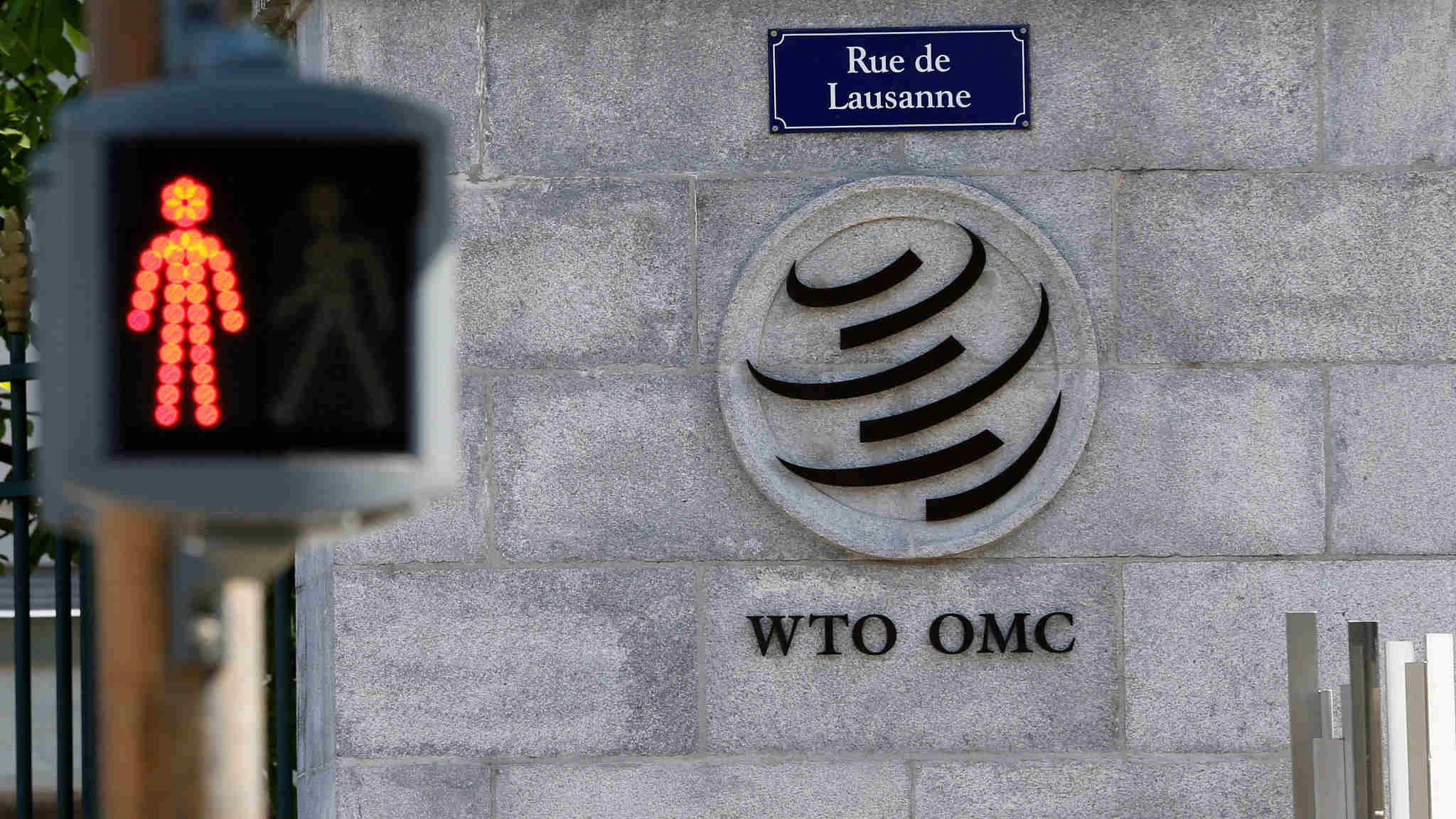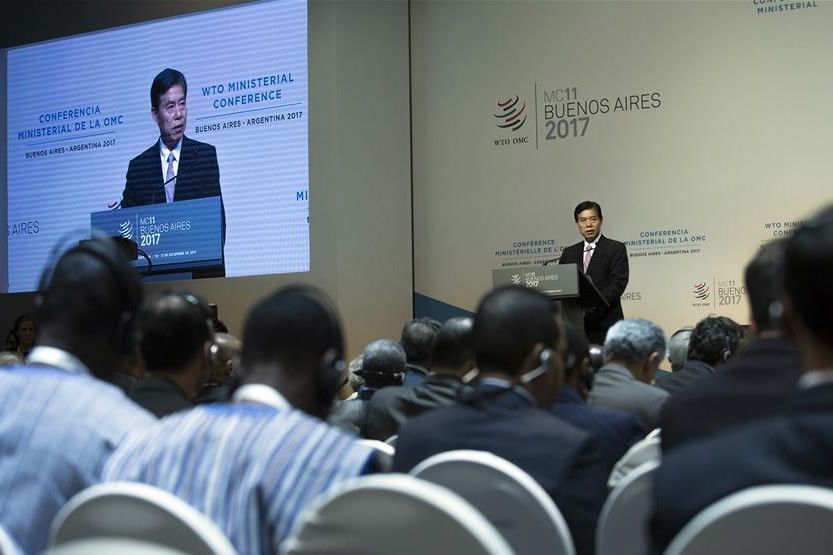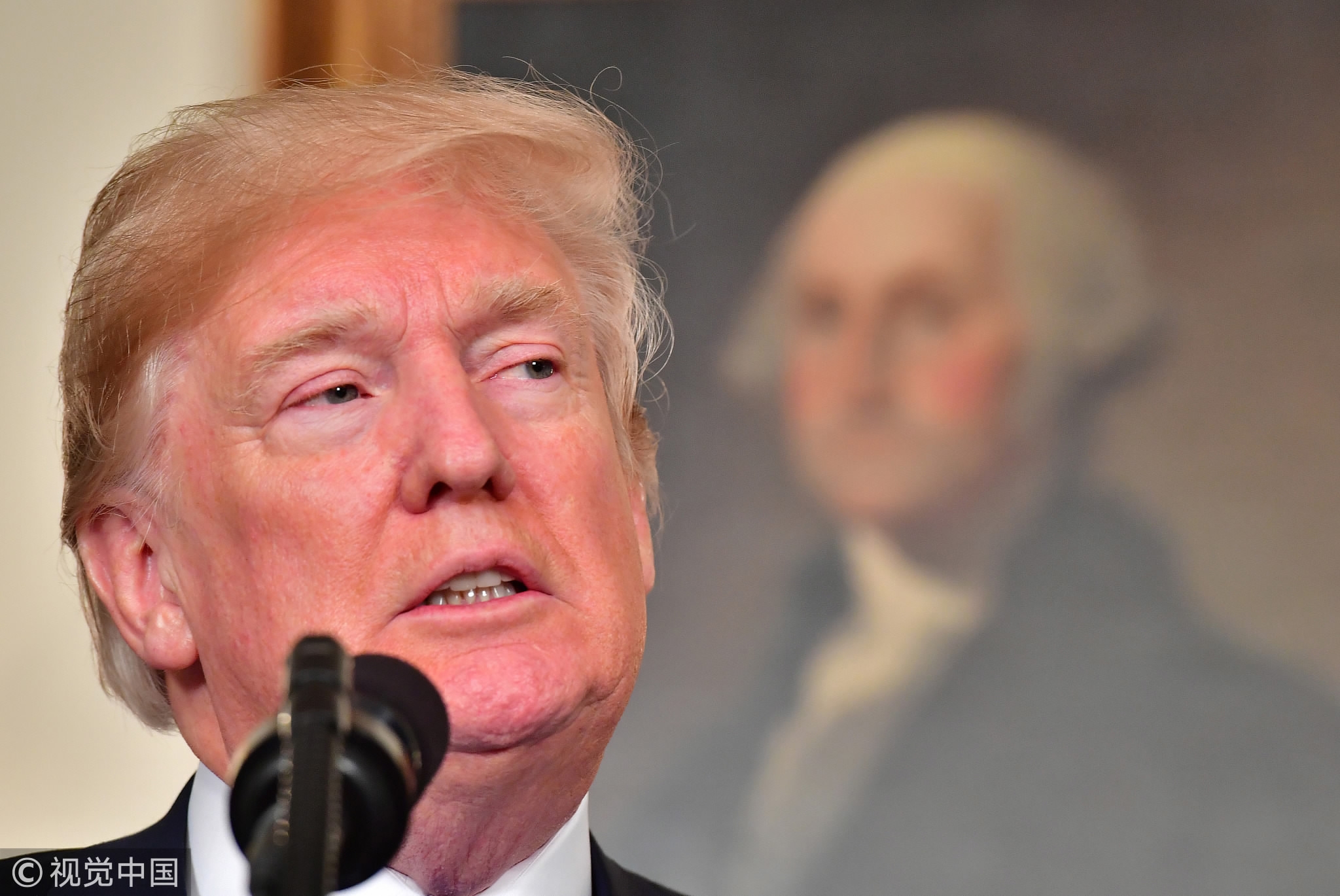
Opinions
23:07, 09-Apr-2018
Opinion: Is the WTO really unfair to America?
CGTN

“The WTO is unfair to US.” Trump tweeted this complaint after announcing he was considering 100 billion US dollars in tariffs on Chinese goods. According to him, it is unreasonable that China is considered a developing country within the WTO since it will “get tremendous perks and advantages, especially over the US.” Is his accusation really valid?
It is known that a country’s status as a developing country depends on its real economic development status. In 2017, China’s per capita GDP is 8,836 dollars, only 1/6 of America’s and ranked 70th on IMF list. Even according to the World Bank definition of developed countries, those with gross national income per capita over 12,000 dollars, there is still some gap for China.
Therefore, it is undoubted that China is a developing country. Indeed, China is the second largest economy in the world. But ignoring other facts like per capita GDP is clearly misjudged.
And yes there are special provisions which treat developing countries more favorably than other WTO members. However, when China joined the WTO in 2001, there was no clear statement recognizing that China could enjoy those special provisions. Instead, after a marathon accession negotiation, China made great compromises and agreed to a “flexible and practical attitude” to deal with its status as a developing country.

Chinese Commerce Minister Zhong Shan delivers a speech during the plenary session of the 11th World Trade Organization's ministerial conference, held in Buenos Aires, capital of Argentina, on Dec. 11, 2017. /Xinhua Photo
Chinese Commerce Minister Zhong Shan delivers a speech during the plenary session of the 11th World Trade Organization's ministerial conference, held in Buenos Aires, capital of Argentina, on Dec. 11, 2017. /Xinhua Photo
In the meantime, after 17 years of being a WTO member, China is haunted by the “Analogue Country Method.” It means that in an anti-dumping investigation, a country can use third-country prices as a reference and not the product price in the exporting country. This has led many Chinese enterprises to have more tariffs imposed on them.
America has launched the second most anti-dumping investigations that have targeted China. And 76 percent of America’s appeals on trade have been solved through the WTO, compared to a 53 percent solving rate outside it. It seems that WTO does not treat America unfairly.
Then why is America still whining and complaining?
It is clear that this time America is using the “Section 301” investigation to tackle the trade relations between two WTO members in a crude way. In other words, when America found that it could not restrict China under the current WTO framework, it did not hesitate to give up its promises and acted unilaterally.

US President Donald Trump delivers remarks before signing an executive memorandum targeting China on trade in the at the White House on March 22, 2018. /VCG Photo
US President Donald Trump delivers remarks before signing an executive memorandum targeting China on trade in the at the White House on March 22, 2018. /VCG Photo
Thus, this is less a China-US trade conflict than a fight between unilateralism and multilateralism; a confrontation between protectionism and free trade. It is not likely, to say the best, that America would respect international order and WTO rules like China.
There is a Chinese saying, "A promise must be kept and action must be resolute." Seventeen years after joining the WTO, China has been abiding by WTO rules and actively participating in building a fair and equal international trade system. This has not only benefited China itself but also the whole world. Now China is facing a serious challenge and threat to its core interests. But amid Trump’s harsh criticism, China has shown its determination: We do not want a trade war, but definitely won’t be afraid of one.

SITEMAP
Copyright © 2018 CGTN. Beijing ICP prepared NO.16065310-3
Copyright © 2018 CGTN. Beijing ICP prepared NO.16065310-3